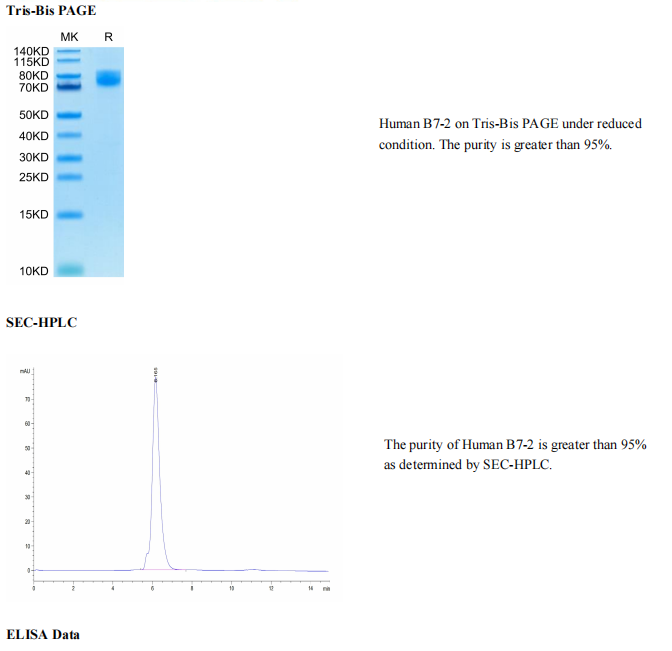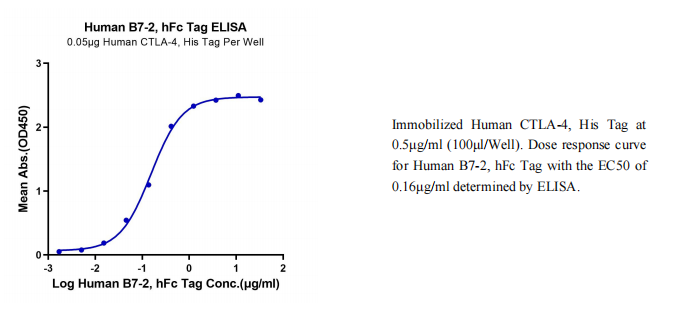B7-2, also known as CD86, B70, and ETC-1, is a 60-100 kDa variably glycosylated protein in the B7 family. B7 family members are transmembrane cell surface molecules that play important roles in immune activation and the maintenance of immune tolerance. Mature human B7-2 consists of a 224 aa extracellular domain (ECD) with two Ig-like domains, a 21 aa transmembrane segment, and a 61 aa cytoplasmic tail. Within the ECD, human B7-2 shares 59% aa sequence identity with mouse and rat B7-2. Alternative splicing of human B7-2 generates additional isoforms that lack both Ig-like domains or a region that includes the transmembrane segment. B7-2 is highly expressed on activated antigen presenting cells (APC), e.g. B cells, dendritic cells, and monocytes, as well as on vascular endothelial cells. B7-2 and the closely related B7-1/CD80 exhibit overlapping but distinct functional properties. Their binding to CD28, which is constitutively expressed on T cells, enhances T cell receptor signaling and also provides TCR-independent co-stimulation. B7-1 and B7-2 additionally bind the CD28-related protein, CTLA-4, which is up regulated and recruited to the immunological synapse (IS) at the onset of T cell activation. CTLA-4 ligation inhibits the T cell response and supports regulatory T cell function. B7-2 is expressed earlier than B7-1 following APC activation, and both proteins bind with higher affinity to CTLA-4 than to CD28. B7-2 promotes the stabilization of CD28 in the IS, while B7-1 is primarily responsible for promoting CTLA-4 recruitment and accumulation in the IS.
高纯度、高活性、低内毒素、高批间一致性


-25 ~ -15℃保存,收到货之后有效期1年。 复溶后, 无菌条件下,-85 ~ -65℃保存,3个月有效期。

